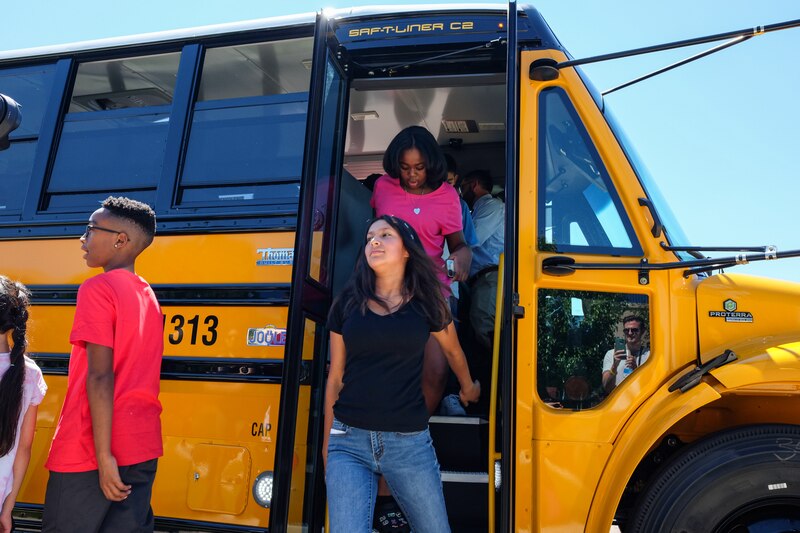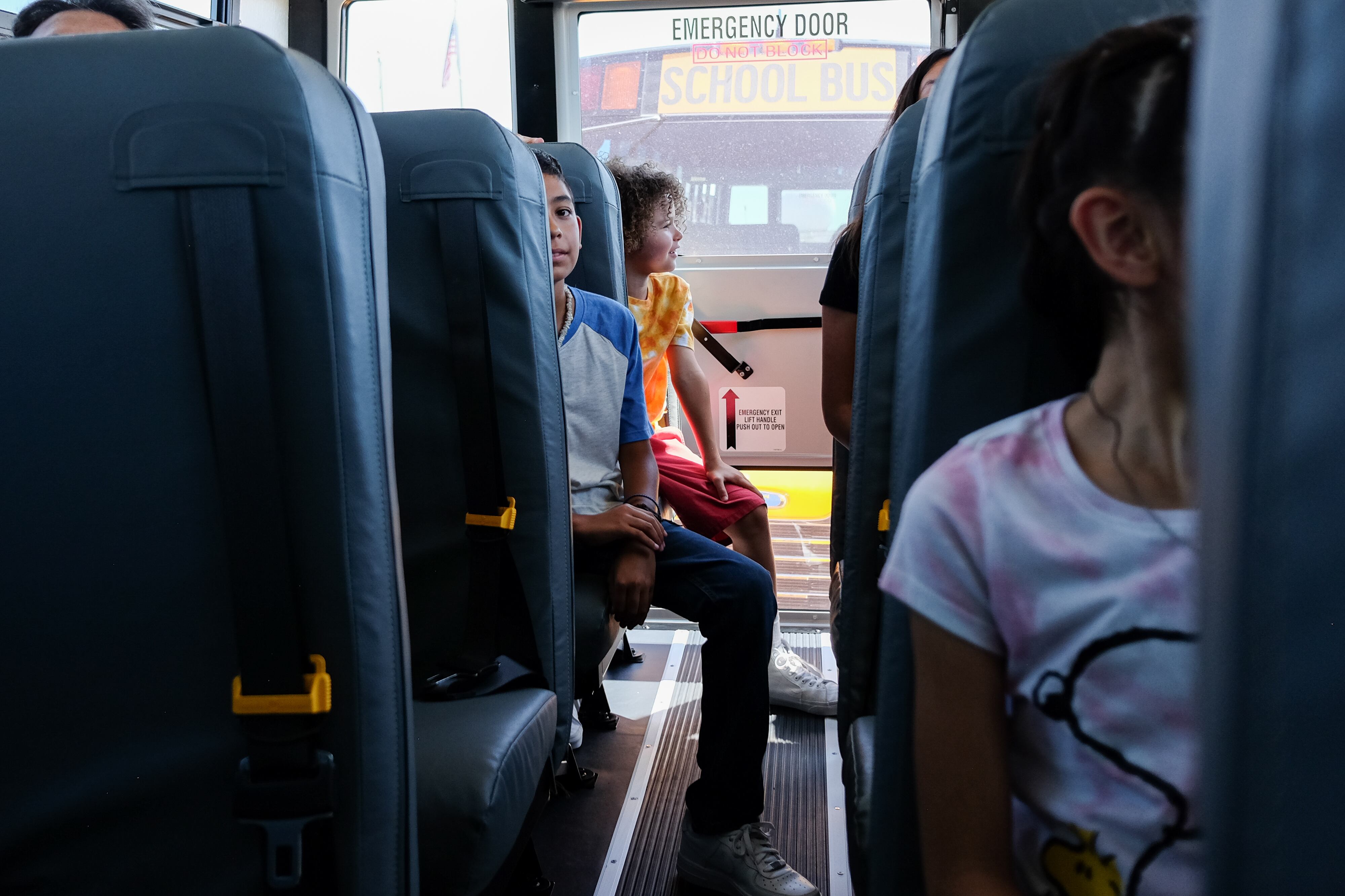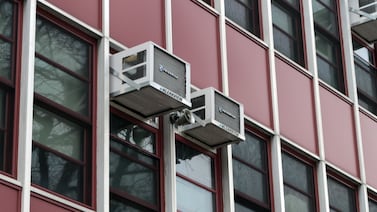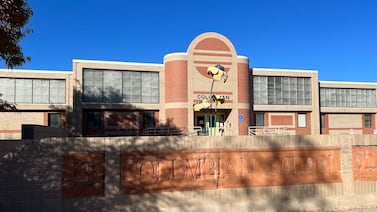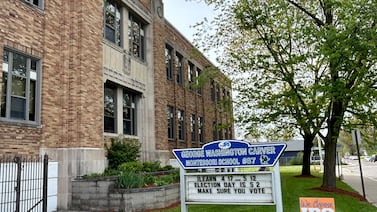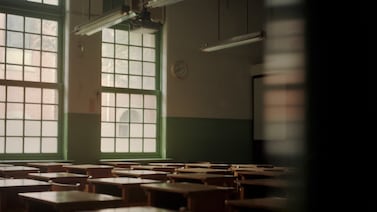No motor. No noise. No tailpipe. No exhaust.
Aurora Public Schools’ seven new electric school buses look like other yellow buses in the district’s 151-vehicle fleet, but they don’t drive like the other buses and don’t pollute like the other buses.
Environmental advocates and government officials hope a major infusion of state and federal money can jumpstart widespread fleet replacement that would have most Colorado students transported on cleaner, quieter buses within the decade.
But achieving that likely would require technological advances to extend the range of electric buses and enough demand to bring down upfront costs.
Last year’s federal infrastructure bill included $5 billion for the Clean School Bus program. The first round of school district applications are due Aug. 19. Rebates can go toward electric school buses and charging infrastructure, as well as buses that run on compressed natural gas or propane in rural communities that need longer range. Money will continue to be distributed over the next five years.
Schools that don’t make the cut can apply in a future round or apply for a grant through Colorado’s $65 million electric school bus program adopted this year. While the federal program gives higher priority to rural and tribal schools, the state program gives higher priority to high-poverty schools.
Republicans criticized the state program as typical of Democratic overspending on low-priority pet projects, but Colorado Gov. Jared Polis said money saved on fuel and maintenance will go back into classrooms.
Polis and EPA Region 8 Director KC Becker recently joined lawmakers, school officials, and activists at a demonstration of Aurora’s electric school buses to encourage school districts to apply for funding.
“We all have a right to clear air. The children, the drivers, everyone,” said Ean Tafoya, Colorado state director for Green Latinos, who noted that Latino communities are heavily affected by air pollution. “It’s important to advocate with our school districts for these programs.”
Sabrina Pacha, director of Healthy Air and Water Colorado, said she works with a pediatrician who knows she’ll see more children with respiratory issues in her clinic on days when Denver’s brown cloud appears more prominent on her commute.
“That’s what transportation pollution is doing to our kids,” Pacha said. “It’s exacerbating underlying health conditions, and it’s putting them at greater risk of developing asthma and other respiratory issues.”
Aurora purchased its buses this spring with a $2.2 million grant from the regional air quality council to replace diesel buses bought in 2009. The district plans to use the buses on its longest routes for maximum savings and add more as more funds become available.
Right now, electric school buses cost about twice as much as diesel buses, though they’re cheaper to operate on a daily basis.
“Schools have to replace buses at some point anyway, so this is a great program,” Becker said. “There’s an equity piece, there’s a cost savings piece, and there’s an environmental piece.”
The most immediate benefit will be felt in neighborhoods, when diesel buses aren’t idling in front of schools and on bus lots, she said.
Between the two funding sources, Polis said he hopes to see a fully electric school bus fleet within 10 to 12 years. It’s not clear how many buses might be purchased or what percentage of the current fleet might get replaced with existing funding streams.
Polis predicted that federal funding would transform the market for electric school buses and charging infrastructure. The state money is enough to help school districts buy a bus, while the federal money is enough to push manufacturers to step up production and bring costs down, he said.
Aurora Fleet Manager Omar Espinal said he plans to monitor metrics ranging from energy use to student behavior during the first 90 days the buses are on the road. He’s optimistic the quieter ride will encourage calmer behavior from students, in addition to the buses’ other benefits.
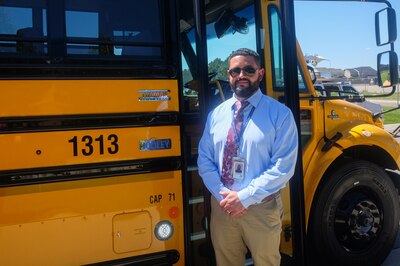
Some 350 miles away in Durango, Transportation Director Daniel Blythe generally agrees.
The district’s electric school bus, purchased last year in a partnership with the La Plata Electric Association, doubles as a battery that can feed back into the grid during times of high-demand.
It’s “freaky quiet,” Blythe said. “You can hear the tires on the concrete. You can hear anything that’s being said front to back.”
Blythe says he would recommend any district pursue the technology. The bus easily covers its daily route, even in winter when heaters draw more power from the battery, and it can charge in the middle of the day in between longer runs.
Blythe hopes to have four electric buses out of a fleet of 35, at least until the travel range improves. Trips to sporting events can reach 300 miles or more, so he still needs some diesel buses.
“We don’t like to push it to the limit because it would be a bad look to be on the side of the road,” he said.
Bureau Chief Erica Meltzer covers education policy and politics and oversees Chalkbeat Colorado’s education coverage. Contact Erica at emeltzer@chalkbeat.org.
